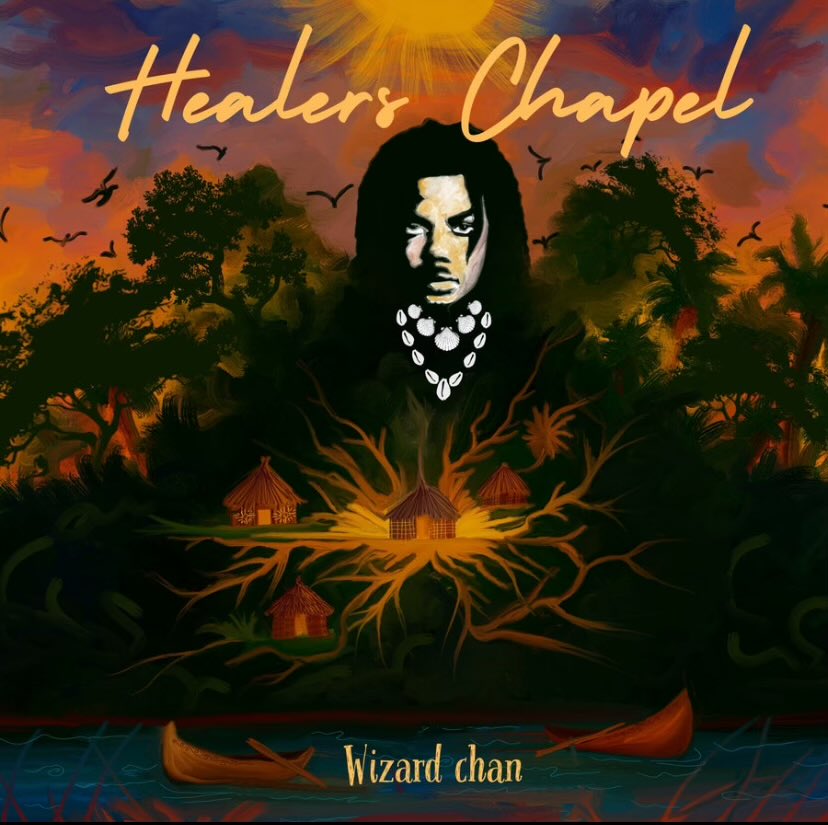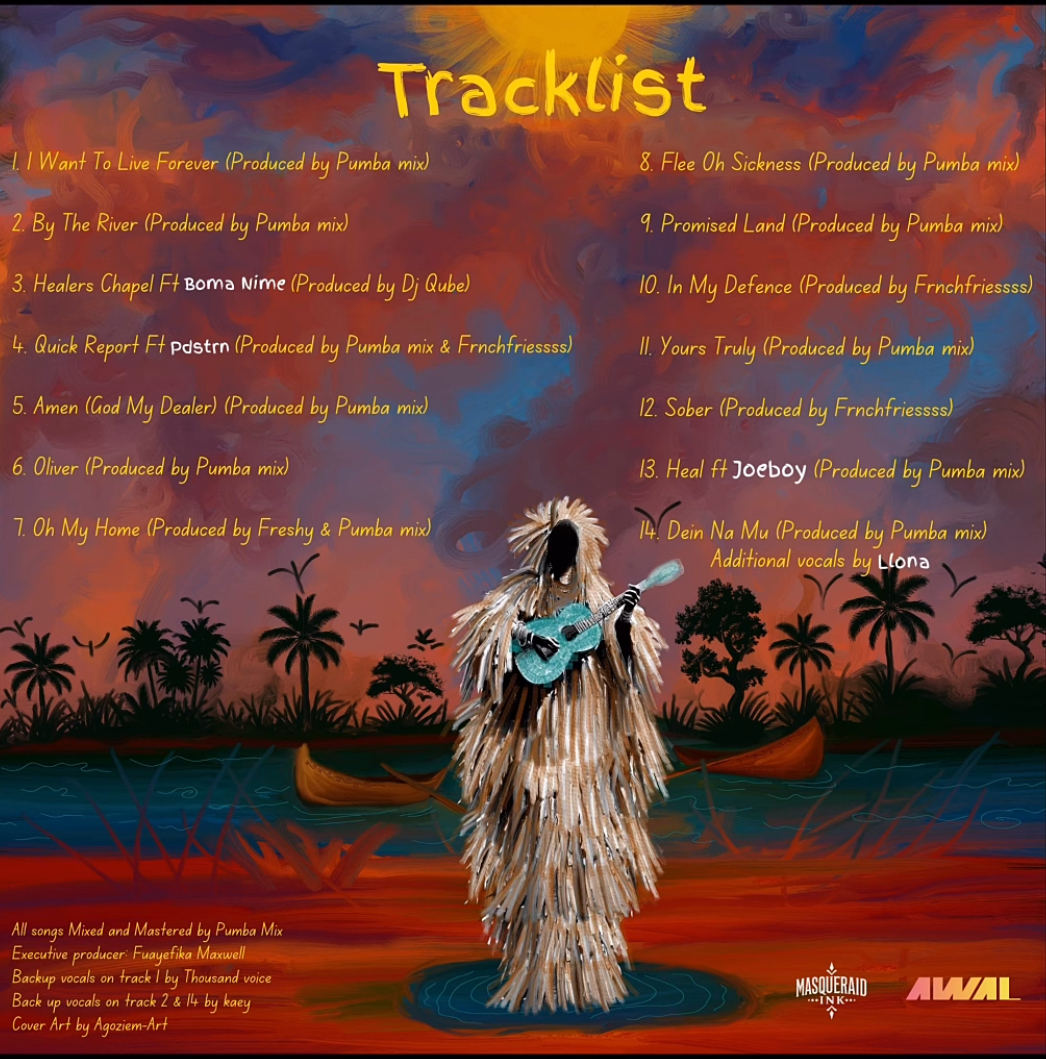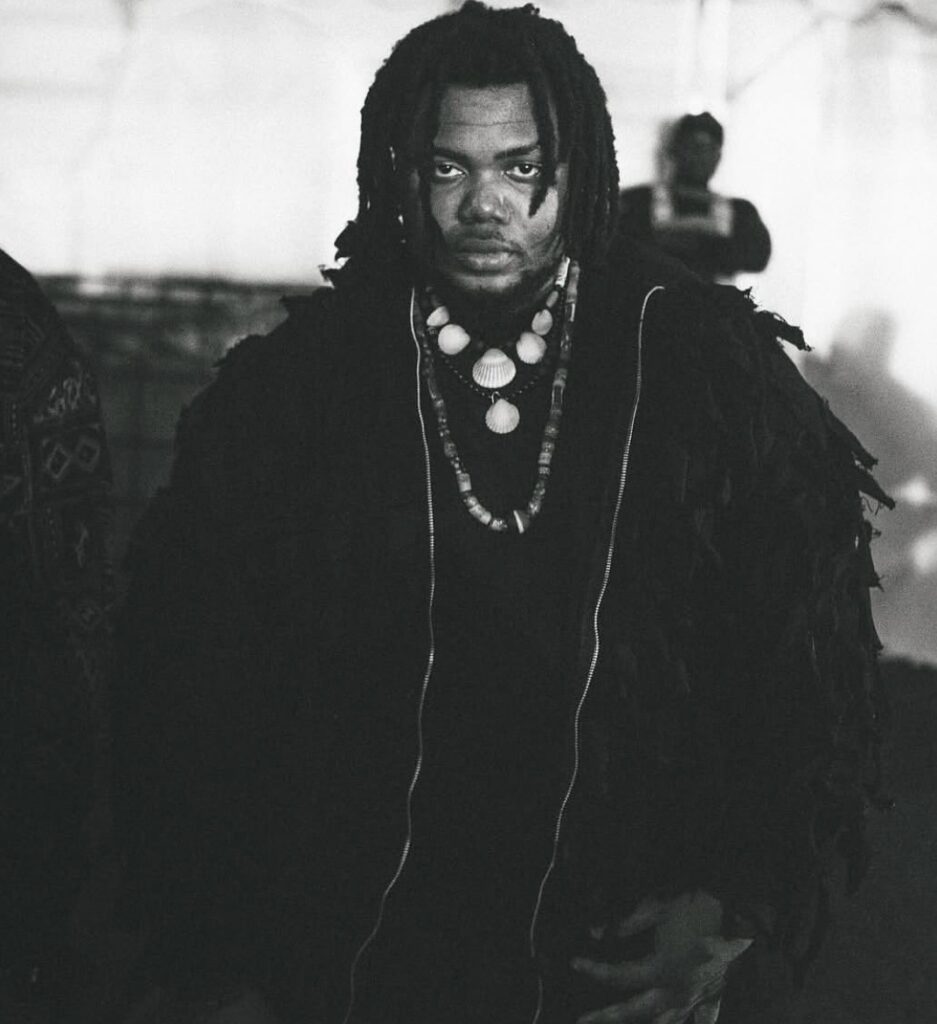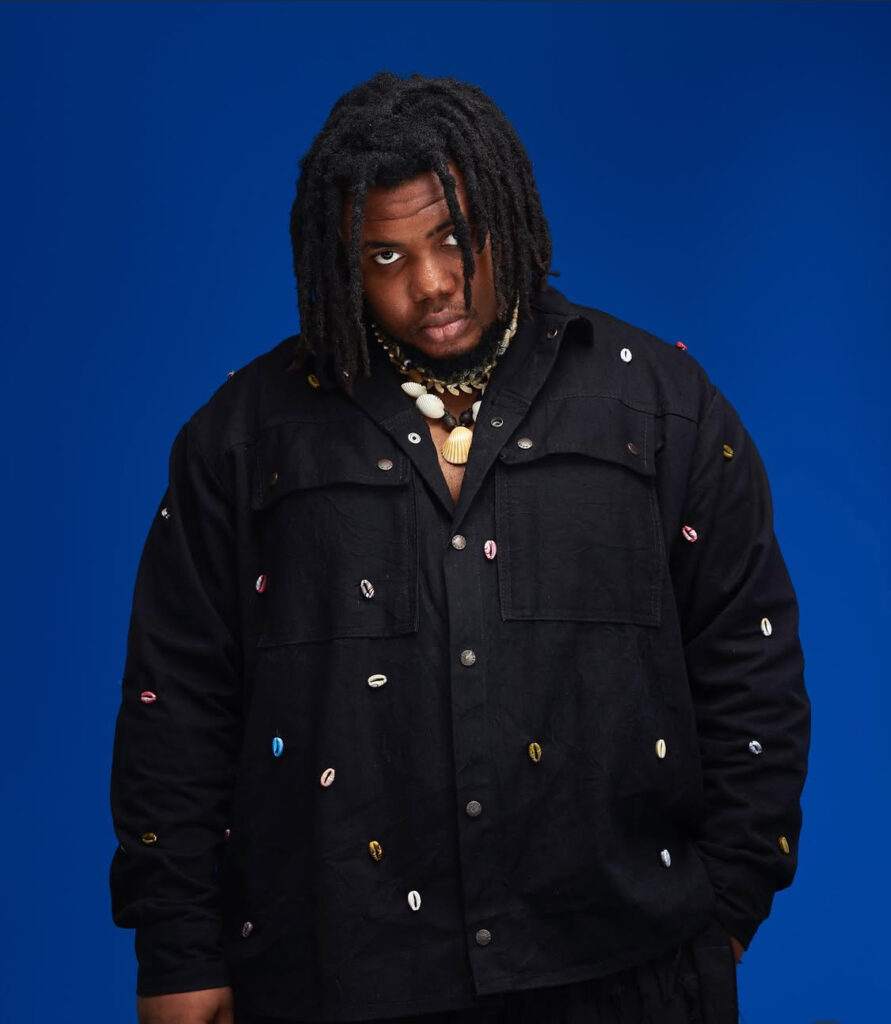
Most people probably know Wizard Chan for his hit songs Earth Strong (Headies winner for Best Alternative Song of the Year 2023), Loner ft. Joeboy, or more recently Flacko featuring Odumodublvck. Not a bad introduction, but many might not know that the Ijaw musician is one of the most prolific and innovative songwriters of this current era. His 2024 EPs, The Messenger and Time Traveller, testify to that. He has also solidified himself as a cultural icon, making his music distinct with a strong spiritual presence by infusing elements of his native Ijaw language. Deeply influenced by reggae, his sound is a rare fusion of Afrobeats, reggae, traditional rhythms layered with introspective lyrics and a deeply spiritual presence.

After two successful EPs, expectations for his debut album were high. Healer’s Chapel contains 14 tracks, including two singles, Oliver Twist and Amen, released a few days prior. It’s commendable that he didn’t pack in all his previous hits just to boost streams, he could easily have included Flacko with Odumodublvck, something very typical of debut albums. Instead, he stayed true to the album’s theme: healing for souls that yearn for it. This reinforces what many fans, particularl, have long said, that his music is therapeutic.

The album begins with a slow, sonorous piece, I Want to Live Forever, setting the perfect tone for what’s ahead. In it, he expresses his uttermost desire to immortalize his music in the souls of men, even long after his death, calling on God in his language to help fulfill this. The second track, By the River, teased earlier in the album rollout, continues in the same vein calm and hymn-like, until a beat drop about 40 seconds in that sustains the rest of the track. The River Jordan reference is no small detail: a crucial geographical location in Christendom where God showcased His power repeatedly, parted for Israel, Elijah, and Elisha; where Naaman’s leprosy was healed; where the axe head floated; and where Jesus’ ministry began with baptism. It’s no wonder that in his therapeutic journey, Wizard Chan leads his listeners here for spiritual cleansing. Yet, at the chorus, something falls short. When he calls out “everybody,” signaling what should have been a full-throated echo, what we got instead was Kaey, an upcoming singer giving a low, almost hidden backup. The track is still strong, but it could have been lifted higher by leaning into that choral expectation.
Three features appear on the album: Healer’s Chapel with Boma Nime, Quick Report with PDSTRN, and Heal with Joeboy. Chan’s chemistry with Boma Nime, a female duo of senior Ijaw singers has never disappointed, as heard in Koo Koo, Earth Strong, and Higher Powers. Their contribution on the title track is no different, grounding the song in Ijaw praise and worship while denouncing evil, bringing the album’s title track to life. Chan ends with, “Welcome to the healer’s chapel, hope this message meets you well,” officially opening the therapy session.
On Quick Report, PDSTRN adds depth with his drill-inspired flow, layering the song with themes of betrayal, the pain of losing loved ones, and prayers for their souls to guide the living. His verse enriches the song with both lyricism and texture.
The singles, Amen and Oliver Twist, arrive at tracks 5 and 6. Amen is fast-paced, framing God as his “dealer”, symbolically replacing substance addiction with divine reliance. Oliver Twist is catchy and melodic, but its irony shouldn’t be missed. Dickens’ Oliver wasn’t greedy, he was starving, asking for more because he had too little. Chan, by contrast, is fairly well-off yet sings of wanting more money like Seyi Tinubu and Aso Rock. There’s nothing wrong with ambition, but the comparison to Oliver’s plight feels ironic, even hypocritical.
One of the album’s greatest strengths is its arrangement. The flow feels deliberate, guiding listeners through a therapeutic arc. Tracks 11, 12, and 13 (Yours Truly, Sober, Heal) form a trilogy of raw vulnerability. Yours Truly taps into Chan’s reggae side, written as a letter to distant family and friends where he apologizes for his absence, confesses struggles with mental health and substance abuse, and vows to do better. Sober is the emotional peak, where he openly declares his decision to quit smoking and drinking. Finally, Heal closes the arc with Joeboy’s feature. Together, they affirm that healing requires not just abstinence but a deeper, spiritual reconciliation. Joeboy’s verse adds melodic depth, emphasizing that pain itself is unavoidable but survivable.
Other highlights include Oh My Home, with its mid-tempo highlife groove that closes with the timeless Nigerian school/military chorus in acapella a nostalgic gem. Flee Oh Sickness is more intense, almost revivalist, with its commanding refrain: “sickness flee, I command thee.” It’s one of the album’s most powerful, high-energy moments.
The album closes with Dein Na Mu (“Go in Peace”), a hymn-like song mirroring the intro. Spirit-filled and moving, it bids farewell to list souls, sorrow, destructive habits, and depression. With background vocals from Llona adding emotional weight, the track feels like the benediction at the end of a healing session, a reconciliation with reality and a release of burdens.

With Healer’s Chapel, Wizard Chan proves not only that he understands his listeners but that he’s willing to carry the burden of guiding them toward a sense of healing. This album leans less into his earlier embrace of ancestral worship (Earth Strong, Masquerade) and more into gospel-infused reggae, with recurring references to Amen, River Jordan, and the Holy Spirit. At its heart, it’s a therapeutic project that blends spirituality, vulnerability, and storytelling into one cohesive sanctuary.
Chan has once again cemented his place as one of the most daring and introspective songwriters of his generation.
RATING
Sound & Production = 1.4/2
Lyrics & writing = 1.8/2
Performance = 1.7/2
Originality = 2/2
Reply value = 1.8/2
8.7/10
